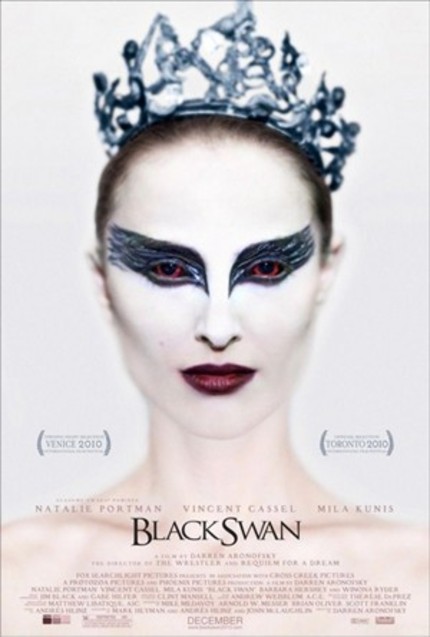BLACK SWAN review

Natalie Portman turns in a career highlight performance as Nina Sayers, a young member of a New York City ballet troop. Nina is equally inconspicuous and insecure, which makes it all the more surprising when the ballet's imposing artistic director Thomas Leroy (played brilliantly by Vincent Cassel) taps her for the lead in his re-imagining of Swan Lake. Leroy knows full well that Nina is perfect for the White Swan aspect of the performance, as virginal and introverted as she is. It's steering her to an effective realization of the character's flip side - the dark and troubled Black Swan that is his true challenge. Although Leroy's true motives in casting Nina are not absolutely clear, it's safe to say that based upon his basking in the abusive control he levels upon her, that this challenge is something he savors.
Tragically, Nina can never celebrate the opportunity that this lead role brings to her. Instead, it only serves to trap her all the more. Already a lifelong victim of her emotionally abusive single mother, her longtime social and mental isolation is replaced with a delusional flurry of late-term rebellion. The notion of "reality" is as uncertain to the film's audience as it is to Nina, as instability fueled by drinking, drugs, sex, bizarre hallucinations and grotesque imagery eek their way into the fabric of everything. (If the film has a glaring misstep, it would be the exact, on-the-nose nature of these hallucinations.) Further complicating matters is Nina's relationship with her rival-turned-uneasy confidant, Lily (played with astonishing confidence by Mila Kunis).
Aronofsky has attempted something grandly different with "Black Swan", detailing at once the harsh realities of life in the ballet (bloody toes, tricked-out slippers, etc.) while infusing them with a deceptively sure-handed stylization that permeates every frame, every moment of the film. Even the many handheld camera shots are framed intentionally and precisely. The carefully controlled color palate of black/white/grey (most powerfully displayed in Leroy's dwelling and vicinity) is punctuated by the sickliest of washed-out geriatric pink hues peppered throughout scenes in the ballet world and Nina's home. These flourishes, while effective through and through, never call attention to themselves in a loud way. It all adds up to making the tragedy of "Black Swan" an artistic cinematic success in every sense. It is a dark and rich film experience that won't be soon forgotten.
- Jim Tudor

Do you feel this content is inappropriate or infringes upon your rights? Click here to report it, or see our DMCA policy.






